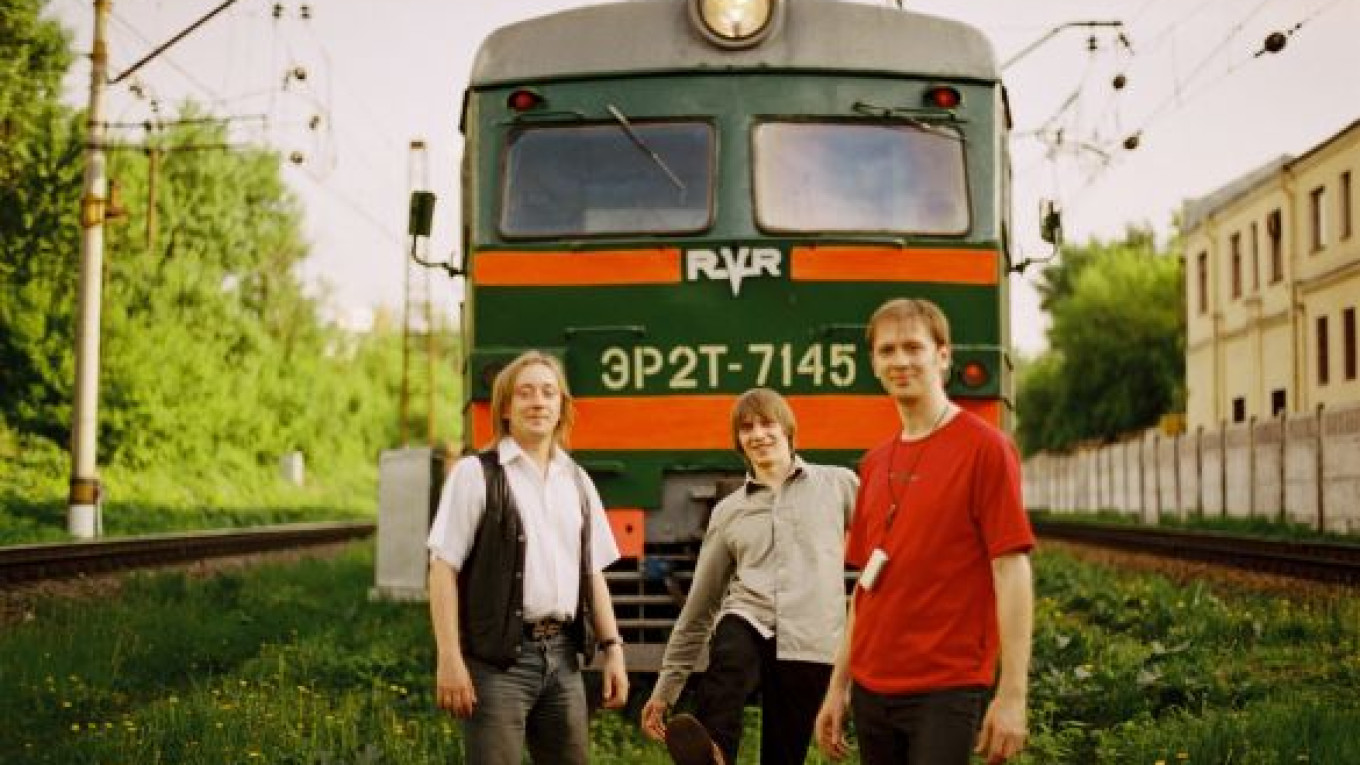Twentieth-century nostalgia of a particular kind unfolds on Sunday in Moscow as The Beatles, well, one original member at least, come to town.
“Back in the U.S.S.R.” will be on repeat as the international “Best of The Beatles” festival plays at B1 Maximum, featuring a lineup of Beatles tribute bands from Belarus to Buenos Aires.
Headlining will be a different quartet from Liverpool, The Pete Best Band, whose leader was the original drummer for The Beatles for two years, before he was thrown out of the group in 1962.
Best became a civil servant after leaving The Beatles, but he returned to music and, even though he is 68, continues to tour. The group performs Beatles hits as well as its own original songs.
“Playing up there with Pete Best will be an event in itself,” said Alexei Plyush, the self-styled “John Lennon” of Moscow-based group The Beatween, which will also play the festival. Other groups include Nube 9 from Argentina and Double Fantasy from Minsk.
“With the international bands we have for the festival, the whole event will display a certain Beatles diversity,” Plyush said. “It certainly doesn’t matter that we’re not all English!”
The festival is also being used to promote “Back In U.S.S.R. or On the Waves of Our Memory,” a book by two leading pundits on Beatles nostalgia, Vladimir Ilinsky and Vyacheslav Syomin. Ilinsky, who has his own radio show called “Beatles Hour” on Ekho Moskvy, and Syomin, author of a rock encyclopedia, plan to give a talk that night.
“Our book is about the realities of the ‘60s, when all this was banned, and about today’s ironies when one president [of Russia] hosts Paul McCartney in Red Square and the next admits to having collected Beatles records in his youth,” explained Ilinsky, referring to Vladimir Putin and Dmitry Medvedev.
The Beatles never made it to the Soviet Union — although there was an urban myth that they played a gig for nomenklatura at a Moscow airport — despite that song about their love for Georgian girls.
Soviet authorities clamped down on the Fab Four’s influence from the start with Nikita Khrushchev famously calling The Beatles’ music “cacophonous rubbish,” but the forbidden fruit from Liverpool still made its way into the U.S.S.R. with a hefty trade in samizdat — or illegally self-published copies of censored materials — of Beatles recordings for determined lovers of the sounds of the ‘60s.
The suppression only made them more popular. Fans would wear badges with the famous portrait of Nikolai Gogol as a young, long-haired writer as a way of expressing their affection for the young, long-haired John Lennon, wrote music critic Artemy Troitsky in his book “Back in the U.S.S.R.” about rock and pop in the Soviet Union, and some academics have even argued that it was the mass appeal of The Beatles in the Soviet Union that helped end the Cold War.
Older rockers will play next to musicians born after the death of John Lennon in 1980 at the festival, and the age of the crowd is expected to be just as broad.
“We usually get grandmas and grandpas dancing next to small kids, all generations,” Plyush said.
Best of The Beatles begins at 6 p.m. on March 21 at B1 Maximum, 11 Ulitsa Ordzhonikidze. 921-1557, www.b1club.ru.
A Message from The Moscow Times:
Dear readers,
We are facing unprecedented challenges. Russia's Prosecutor General's Office has designated The Moscow Times as an "undesirable" organization, criminalizing our work and putting our staff at risk of prosecution. This follows our earlier unjust labeling as a "foreign agent."
These actions are direct attempts to silence independent journalism in Russia. The authorities claim our work "discredits the decisions of the Russian leadership." We see things differently: we strive to provide accurate, unbiased reporting on Russia.
We, the journalists of The Moscow Times, refuse to be silenced. But to continue our work, we need your help.
Your support, no matter how small, makes a world of difference. If you can, please support us monthly starting from just $2. It's quick to set up, and every contribution makes a significant impact.
By supporting The Moscow Times, you're defending open, independent journalism in the face of repression. Thank you for standing with us.
Remind me later.


